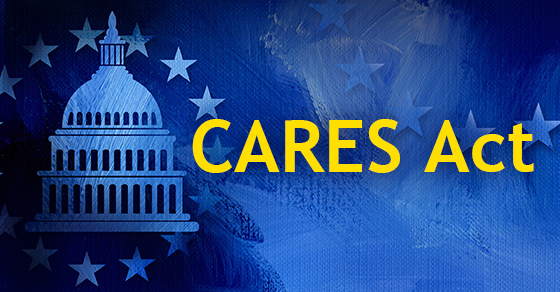Employers should report the employee retention tax credit on their returns for the 2nd quarter of 2020. The Coronavirus Aid, Relief, and Economic Security (CARES) Act supports certain employers that operate a business during 2020 and retain employees, despite experiencing economic hardship related to the COVID-19 crisis. The refundable employee retention credit is equal to … Read More
News
Answers to questions about the CARES Act employee retention tax credit
The recently enacted Coronavirus Aid, Relief, and Economic Security (CARES) Act provides a refundable payroll tax credit for 50% of wages paid by eligible employers to certain employees during the COVID-19 pandemic. The employee retention credit is available to employers, including nonprofit organizations, with operations that have been fully or partially suspended as a result … Read More
IRS: Small Business & Self Employed Suspension Collections Activities
The IRS’s Small Business/Self-Employed (SB/SE) division has announced that it’s suspending some collection activities from March 30 through July 15 to provide relief to employers affected by the coronavirus (COVID-19). According to the IRS, its SB/SE employees should suspend most collection activities unless there’s a risk of permanent loss to the government due to the … Read More
CARES Act offers new hope for cash-strapped nonprofits
On March 27, the Coronavirus Aid, Relief, and Economic Security (CARES) Act was signed into law. How is this massive $2 trillion recovery package poised to help your not-for-profit organization? It depends on your group’s size, financial condition and other factors. But most nonprofits affected by the coronavirus (COVID-19) outbreak are eligible for some relief under … Read More
HSA Contributions Extension
Does your health insurance plan include a tax-smart health savings account (HSA) or perhaps an Archer Medical Savings Account (MSA)? If so, you may be aware that for prior years, you could continue making tax deductible contributions to your account up to the date you file your return or April 15, whichever is later. Due … Read More
CARES ACT changes retirement plan and charitable contribution rules
As we all try to keep ourselves, our loved ones, and our communities safe from the coronavirus (COVID-19) pandemic, you may be wondering about some of the recent tax changes that were part of a tax law passed on March 27. The Coronavirus Aid, Relief, and Economic Security (CARES) Act contains a variety of relief, … Read More
IRS: Contribution Deduction Limit Raised
A provision in the Coronavirus Aid, Relief, and Economic Security (CARES) Act raises the limits on business contributions of food inventories to charities. The law, signed on March 27, specifies that the donation must be made to a charity that will use it for the care of the ill, the needy or infants. The donation … Read More
The gift tax filing and payment deadlines have been extended to July 15
You may have heard that the federal income tax filing and payment deadline has been extended from April 15, 2020, to July 15, 2020, to provide relief for taxpayers adversely affected by the coronavirus (COVID-19) pandemic. What you may have missed is that the U.S. Treasury Department also extended the April 15, 2020, federal gift … Read More
IRS: Taxpayer Services Limited
Various IRS taxpayer services are currently limited, due to staff cutbacks related to the coronavirus (COVID-19). Among the service desks that are closed are: e-Service Filing Information Returns Electronically and online Affordable Care Information Returns systems. The IRS requests that taxpayers seek answers at IRS.gov, or through their tax advisors. Also, under temporary suspension is … Read More
IRS: CARES Act and Small Business Administration
As many Americans are forced to stay home to help stop the spread of the coronavirus (COVID-19), businesses are losing revenue and having to lay off employees. The Coronavirus Aid, Relief, and Economic Security Act (CARES Act) includes provisions to help businesses survive, including a new employee retention tax credit; deferral of the employer portion … Read More










